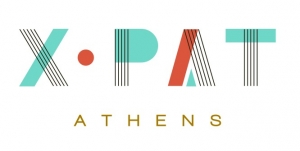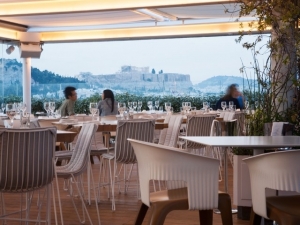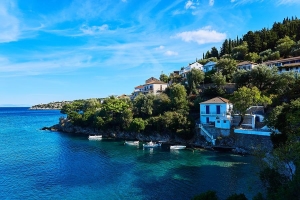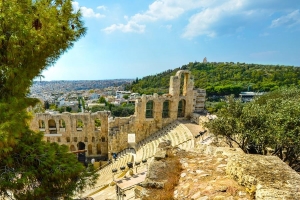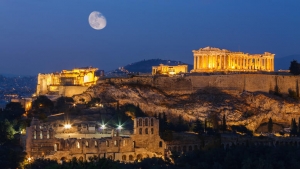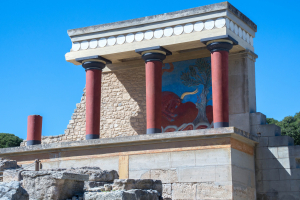XpatAthens
Top Work-Friendly Cafes For Digital Nomads In Athens

Credit: @the_underdog_project
Telephone: 213 0365393

Credit: @shoppingtherapy
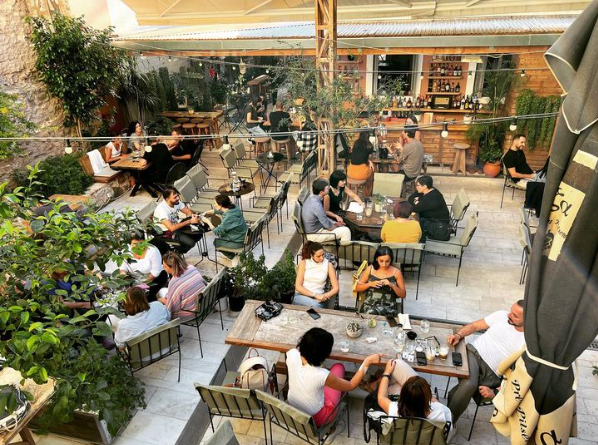
Credit:@saorsa
Meaning "freedom" in Scottish Gaelic, Saorsa in Metaxourgeio is a lively cafe-cocktail bar where you can do many things, including work! Find your sport in its inner courtyard, one of the most picturesque spots in Athens, and enjoy fantastic drinks and delectable food under the Attic sky.
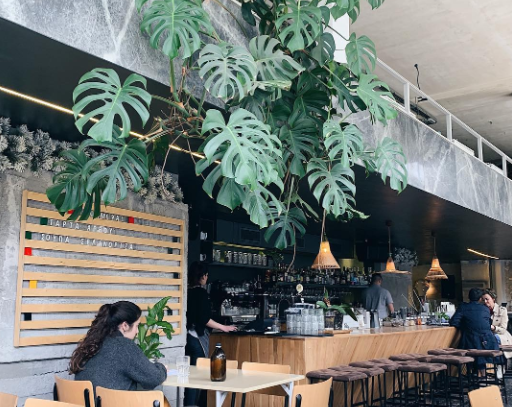
Credit: @kinonobar
With its dramatic high ceiling, light and airy atmosphere, and above all its artistic, and literary clientele, it's easy to mistake Kinonó for an art gallery. However, a lot gets done during the day amid these stylish surroundings while inventive snacks, eclectic DJ sets, and great cocktails entice you to stay after dark!
Naif
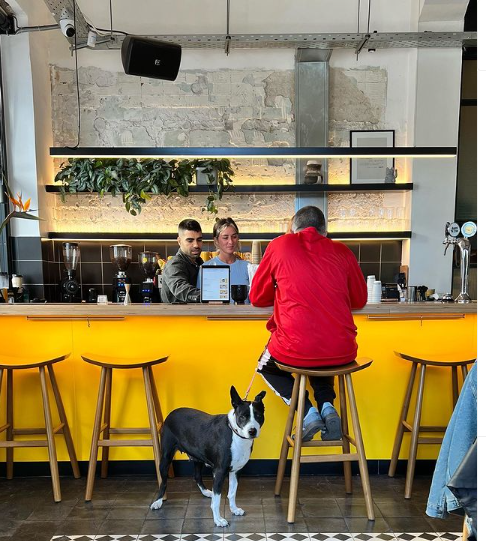
Credit: @mariakrith
Tucked behind the Onassis Stegi culture hub, Naif is a vibrant neighborhood spot in Neos Kosmos. Serving delightful coffee, tasty food, and assorted drinks, it's a local gem with a cosmopolitan touch. On the 1st floor above Naif, you will discover Naif Club—a fresh space for work, meetings, and events. If the café gets too lively, you can escape to the designated quiet area upstairs.
XpatAthens Is For Sale
Are you looking for something new, exciting and challenging? There is no better time than the present - XpatAthens is for sale!!
XpatAthens has been connecting the English speaking community of Athens since 2007, and with under 2 years since its re-branding, it is more ready than ever to continue growing! If you are full of energy, bursting with ideas, and absolutely love Athens and its expat community then maybe you are the right fit to be the next leader of this exceptional information gateway.
Serious enquiries for purchase can be emailed to future@xpatathens.com.
The Little-Known Sea Deities Who Stir Up the Seas
Hytra - Restaurant & Bar
April 24 - The Season Of Travel
June 12 - Good Things Happening
Free October Events In Athens
1) Athens Culture Net At Night
2) ΦantastiCon 2018
On the 6th and 7th of October, ΦantastiCon invites you to a two-day festival at the Hellenic-American Union. All sorts of creatures will transform the place into a forest, while elves and unicorns will meet brave warriors and wizards. The person of honour will be the writer, poet and actor Makis Panorios. The event will last from 11:00 to 21:30.
3) October 1944 - Athens Is Celebrating
For the fourth year in a row, FreeAthens44 and events of ''October 12th 1944. Athens Is Free'' fill the city with activites to celebrate its independence from the Nazi rule in 1944. Shows, events, historic walks, music, theatrical performances, screenings and workshops are just few of the free activities you can enjoy!
4) ''Happy Birthday Mr. Chatzidakis''
On October 23rd, the day Manos Chatzidakis was born, the Greek National Opera will pay a musical tribute to this great Greek composer. On the Stavros Niarchos stage, renowned artists will perform his songs and Schoolwave bands will experiment with his music!
5) A stroll in Athens with its writers
Athens is the World Book Capital for 2018 and you are invited to get to know the CityofAthens and its writers a bit better. During three days, October the 6th, 7th and 13th, both kids and adults will discover a different version of the city ranging from historic tours to early settlements of Asia Minor refugees.
6) Dirty Fuse at the SNFCC
On Saturday October the 13th, Stavros Niarchos Foundation Center invites you to its last outdoor concert with a Surf Rock party and Dirty Fuse!
Originally posted on in2life.gr
Translated by XpatAthens
Visits To Greek Museums And Archaeological Sites Have Increased Significantly
The number of visitors to museums and archaeological sites in Greece rose by 15% and 8.8% respectively in February, according to data that was published by the Hellenic Statistical Authority (ELSTAT), last week.
Regarding museums, during the two first months of 2019, there was a 9.2% increase in visitors, an 8.5 % increase in free admissions, while revenues rose by 17.1%.
In archaeological sites, in February there was an 8.8% increase in visitors, a 20.5% hike in free admissions, and revenues grew by 7.2% compared to the same time last year.
To read this article in full, please visit: Greece-Is
Everything You Need To Know About The Athens & Epidaurus Festival 2020
We all hope that this year's Festival will come to fruition as soon as circumstances allow it, with as few disruptions as possible.


